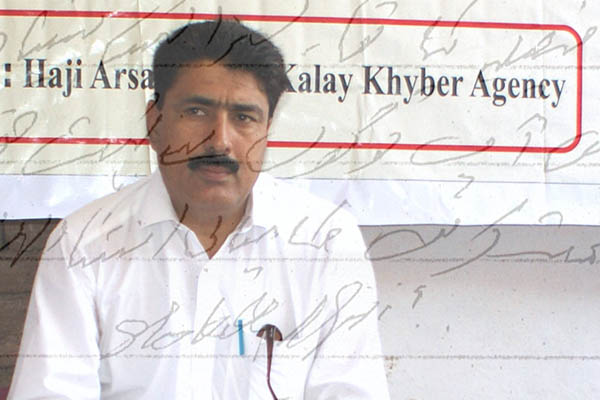Pakistani doctor jailed after Abbottabad raid has written to his lawyers.
Shakeel Afridi, the doctor who helped the CIA find Osama bin Laden through the ruse of a hepatitis vaccination campaign and who is facing treason and murder charges in Pakistan, has maintained his innocence in a fresh communication he sent to his lawyers from jail.
In a two-page, handwritten letter in Urdu dated Nov. 30 and addressed to his lawyers, Afridi writes: “I am the first individual in Pakistan whose lawyers are not allowed to meet him … what sort of justice is this?” Afridi has asked his lawyers to raise this point with the court at the next hearing, on Dec. 9, along with a request for better jail conditions. “I am a Grade 19 officer and a respectable citizen, try to get Class B facilities for me from the court.”
In addition to the charge of treason for helping the U.S. pinpoint bin Laden, Afridi now also faces charges of fraud and murder after a woman from his native district of Khyber accused him of medical malpractice that resulted in the death of her son. The hearing in this matter is scheduled for Dec. 20 at Peshawar’s main jail. Afridi, in his letter, maintains his innocence: “I have been arrested and implicated in a false case.”
One of Afridi’s lawyers, Samiullah Afridi, confirmed to Newsweek the authenticity of the letter. “I received the letter [on Nov. 30] and it is written by my client,” he said. “The complaints are genuine and we have been aware of them.” He added that the fraud and murder case against Dr. Afridi was “nothing but a delaying tactic to keep my client in jail longer.”
The 50-year-old doctor was arrested and charged with betraying Pakistan after U.S. troops killed Al Qaeda chief bin Laden in Abbottabad in May 2011. Last year, he was sentenced to 33 years imprisonment under Pakistan’s tribal-justice system and fined for alleged ties to militants, but a court in Peshawar overturned his sentence this August and ordered a retrial.
Afridi also lists his personal effects in the letter and asks that these be returned to him. “I have sent a list of my belongings to the assistant political agent,” he writes, adding that the district official had informed him he was unaware of any such items. Afridi concludes his letter by expressing confidence in his legal team: “I am very pleased with you people. Pick up courage, God willing, success is very near.”
Afridi’s appeal seeking a fresh investigation in the Abbottabad matter is scheduled for Dec. 9.

